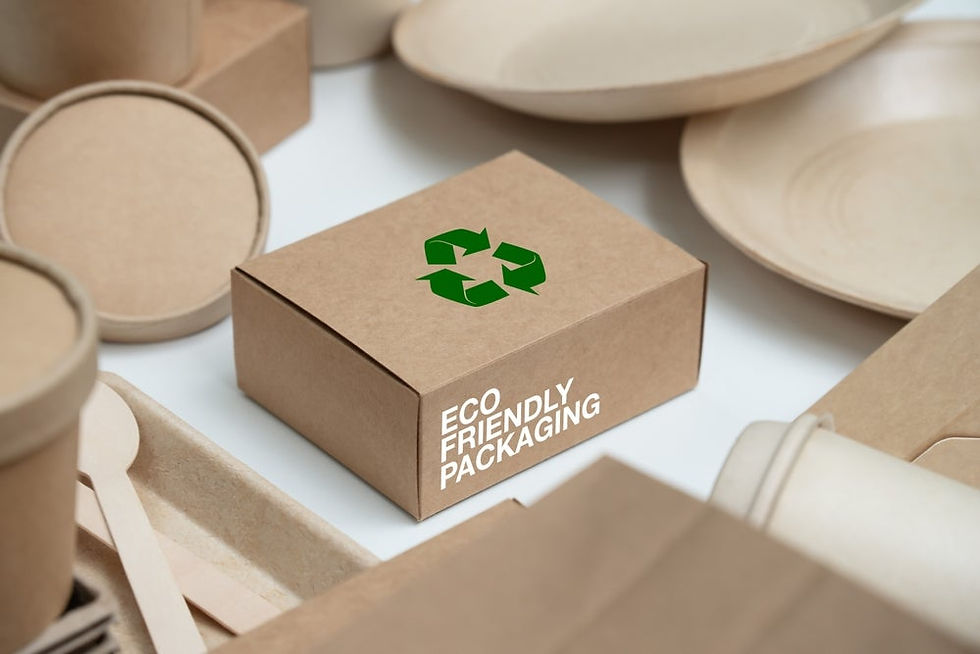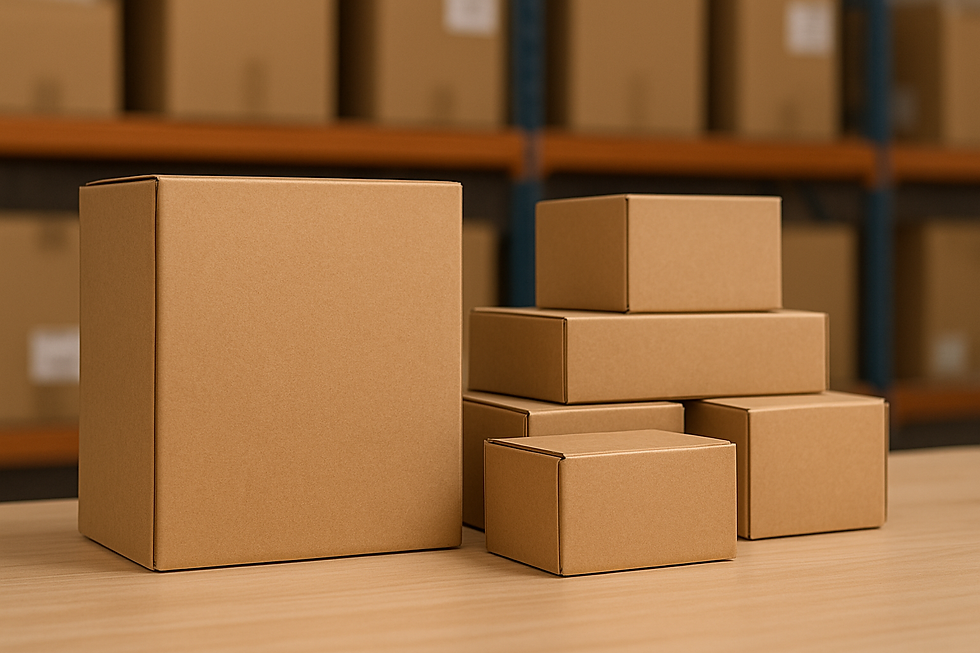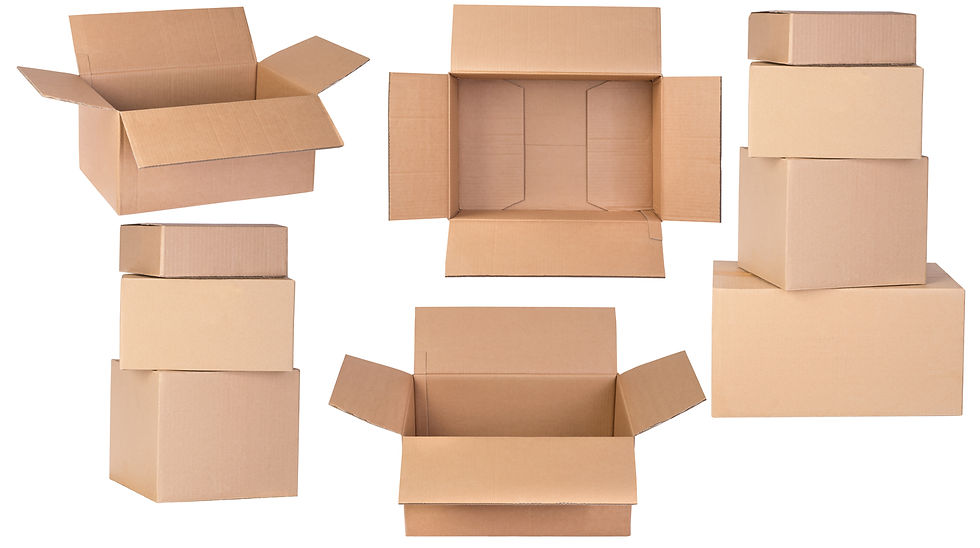Packaging Compliance for Food & Beverages in Australia: What You Need to Know
- Premium Packaging
- May 9
- 4 min read
When it comes to food and beverage products in Australia, packaging isn’t just about design or shelf appeal — it’s a matter of strict compliance. From food safety to consumer labelling, there are multiple rules businesses must follow to legally sell products in the market.
Whether you’re a startup offering homemade granola or a major food exporter shipping wine to Europe, it’s crucial to understand packaging compliance standards to avoid legal issues, product recalls, or worse — harm to consumers. Let’s break it down in simple terms.

1. What Is Packaging Compliance and Why Does It Matter?
Packaging compliance refers to following all the relevant rules, regulations, and standards that govern how food and beverage products are packed, labelled, and sold in Australia.
If you get it wrong, your products can be pulled from supermarket shelves. In 2023 alone, over 150 food products were recalled in Australia, with a significant number due to incorrect or missing labelling.
For food brands, compliance protects:
Consumer health and safety
Your brand reputation
Your business from legal penalties
The major regulatory bodies involved include:
FSANZ (Food Standards Australia New Zealand)
ACCC (Australian Competition and Consumer Commission)
DAFF (Department of Agriculture, Fisheries and Forestry)
2. Key Australian Standards for Food & Beverage Packaging
Every food and beverage business must comply with:
FSANZ Food Standards Code, which lays out legal requirements for packaging and labelling
ACCC guidelines for truthful marketing and consumer protection
HACCP and ISO standards for businesses that want to align with international best practices
If you’re buying wholesale packaging solutions, make sure your supplier knows the Australian rules. Manyfood packaging supplies wholesale providers in Australia offer pre-approved or certified materials to make compliance easier
3. Food Labelling Requirements in Australia
One of the most important aspects of packaging compliance is proper labelling. According to FSANZ, every food label must include:
Product name
Ingredient list (in descending order by weight)
Allergen information (in bold)
Use-by or best-before date
Country of origin
Nutrition Information Panel (NIP)
Storage instructions
Business contact details
Failing to disclose allergens, in particular, is a serious offence. A 2022 FSANZ audit found that 18% of small businesses had incorrect or incomplete allergen labelling.
4. Safe Packaging Materials: What’s Allowed?
It’s not just what’s on the outside that counts — the material used in your packaging must also meet food safety standards.
Approved materials include:
Food-grade plastics (PET, HDPE, LDPE)
Glass and aluminium
Paperboard with food-safe coatings
Compostable bioplastics (certified)
Your packaging must not transfer harmful substances to the food (called “migration”). If you’re using food packaging supplies wholesale, ask for test certificates or migration compliance reports to stay safe and legal.
5. Sustainability Labelling & ARL
The Australasian Recycling Label (ARL) is now widely adopted across Australia. It helps consumers understand how to recycle each part of your packaging — and it's becoming a compliance expectation for major retailers.
Your packaging should clearly show:
Recyclable parts (with correct bin instructions)
Non-recyclable components (like soft plastics)
Instructions for separation (e.g., remove lid before recycling)
According to the Australian Packaging Covenant Organisation (APCO), over 6,000 Australian businesses are now part of the push towards 100% recyclable packaging by 2025.
6. Tamper-Evident & Traceability Standards
For both food safety and consumer trust, your packaging must be:
Tamper-evident: sealed or shrink-wrapped
Batch-coded: includes manufacture and expiry details
Barcode-labelled: with GS1 or traceable code
These features are especially important for ready-to-eat products, dairy, and anything sold through third-party retail or online. Many wholesale packaging solutions providers now include GS1-compliant barcoding services and tamper-proof sealing options.
7. Export Packaging Guidelines
If you’re exporting food or beverages from Australia, you’ll also need to follow packaging rules specific to the destination country.
General export packaging guidelines include:
Clear English labelling + foreign language translation (if needed)
Ingredients and allergens labelled to international standards
Strong, weatherproof bulk packaging for sea or air freight
Major markets like the EU, US, and UAE have strict labelling laws — so always check with your packaging supplier and the DAFF export portal.
8. Allergen & Warning Label Compliance
Australia has one of the strictest allergen labelling rules in the world. You must clearly declare:
Gluten (wheat, rye, barley)
Milk and dairy products
Peanuts and tree nuts
Eggs, fish, sesame, soy
Warning statements are also mandatory for some products — such as caffeine levels, phenylketonurics, or choking hazards on small items like lollies.
In 2021, FSANZ updated its Plain English Allergen Labelling (PEAL) rules — so double-check your packaging if you haven’t already.
9. Best Practices for Small Businesses and Startups
If you're a small or family-run food business, compliance might sound overwhelming — but it’s manageable with the right approach.
Tips for staying on top of compliance:
Choose food packaging supplies wholesale from trusted local vendors
Use compliance checklists from FSANZ and APCO
Work with packaging suppliers who offer labelling support or templates
Consider a compliance consultant for your first big retail batch
And remember — packaging is also your marketing. So, while compliance is mandatory, you can still have fun with branding, eco-designs, and storytelling.
10. What Happens If You Don't Comply?
Non-compliance can lead to:
Product recalls (which are public and costly)
Fines or legal action from the ACCC
Permanent loss of trust with consumers
For example, in 2022, a Melbourne-based snack company was fined over $80,000 for incorrect allergen labelling. That’s a big hit, especially for a small business.
Final Thoughts: Get It Right the First Time
Packaging compliance is more than a legal checkbox — it's part of being a responsible food or beverage brand in Australia. It ensures your products are safe, trusted, and ready for shelves or export markets.
Whether you're just starting out or scaling up your production, working with a reliable wholesale packaging solutions provider will make all the difference. Look for partners who understand local and international regulations, offer food-safe materials, and support custom labelling services.
Getting your packaging right the first time saves time, money, and headaches — and earns you trust in a competitive food and beverage landscape.


Commentaires